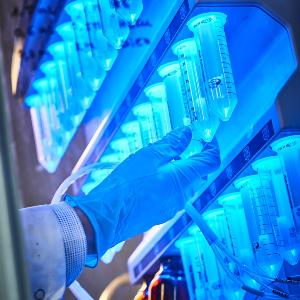-
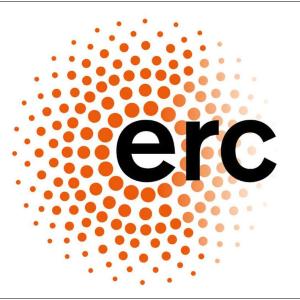 Two LMU research projects awarded with ERC grants
Two LMU research projects awarded with ERC grantsThe path to practice: The European Research Council awards Proof of Concept Grants to Silke Robatzek (Biology) and Tobias Staudigl (Psychology).
-
 LMU Professor Enrique Jiménez discovered Hymn to Babylon
LMU Professor Enrique Jiménez discovered Hymn to BabylonThe find took place during a collaboration between LMU and the University of Baghdad.
-
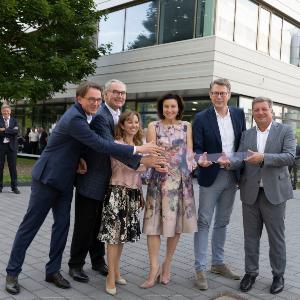 Opening of ICON research center: concentrated expertise for medical research transfer
Opening of ICON research center: concentrated expertise for medical research transferICON concentrates interdisciplinary research into diseases of the cardiovascular system in one place – from research to medical applications.
-
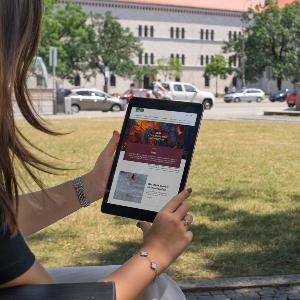 New digital magazine: LMU Research and Innovation
New digital magazine: LMU Research and InnovationFully digital, fully bilingual: LMU Research and Innovation offers a contemporary look at top-level research.
-
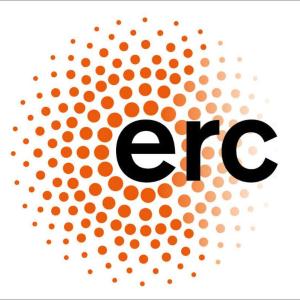 Two ERC Advanced Grants for LMU researchers
Two ERC Advanced Grants for LMU researchersThe European Research Council (ERC) has awarded two prestigious Advanced Grants to LMU researchers.
-
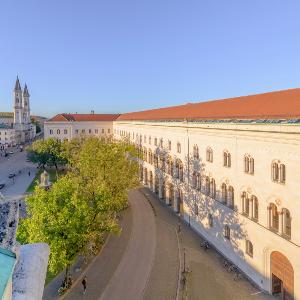 Foundations for innovations in higher education: new CRC at LMU Munich
Foundations for innovations in higher education: new CRC at LMU MunichA new Collaborative Research Centre is being launched at LMU to investigate the possibilities of personalized and simulation-based learning at universities.
-
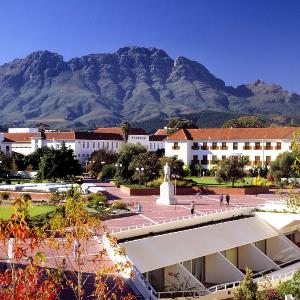 LMU and Stellenbosch University launch strategic partnership
LMU and Stellenbosch University launch strategic partnershipA research fund for 2025 has been set up together with Stellenbosch University covering all disciplines.
-
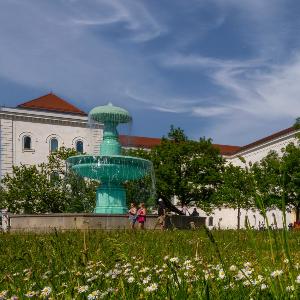 Major achievement for LMU: seven Clusters of Excellence approved
Major achievement for LMU: seven Clusters of Excellence approvedLMU has reached a hugely significant milestone in the Excellence Strategy of the German federal and state governments: All seven proposed Clusters of Excellence have successfully passed the review process and will be funded for seven years as of 2026.
-
 European potato genome decoded: small gene pool with large differences
European potato genome decoded: small gene pool with large differencesA new method will facilitate the genome analysis of further varieties and could help plant breeders in the long term.
-
Researchers are working on more sustainable and reliable AI from Germany
The German states of Bavaria and Saxony are funding gAIn to the tune of around six million euros.
-
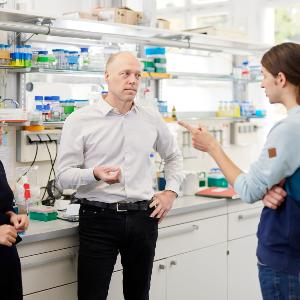 Improving rapid tests: DNA nanotechnology boosts sensitivity of test strips
Improving rapid tests: DNA nanotechnology boosts sensitivity of test stripsThe new method could soon be market-ready and make diagnostic testing more efficient for many diseases.
-
Multi-million euro EU grant to develop novel anti-asthma drug
LMU pharmaceutical scientist Olivia Merkel researches nanocarriers for the targeted delivery of drugs to their site of action.
-
Decoding the mechanism controlling antigen activation in trypanosomes
A new study shows how the pathogen Trypanosoma brucei controls changes in its cell surface to evade the immune system.
-
 Matthias Tschöp elected new President of LMU Munich
Matthias Tschöp elected new President of LMU MunichIn October 2025, Matthias Tschöp will succeed Bernd Huber, who has been at the helm of LMU since 2002.
-
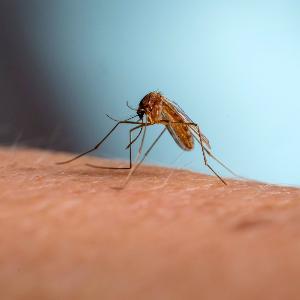 Promising new class of antimalarial drugs discovered
Promising new class of antimalarial drugs discoveredPublished in Nature, the study identifies a crucial epigenetic regulator as well as an inhibitor that specifically kills the parasite.
-
LMU-research transfer: Record funding for spin-offs
LMU spin-offs attracted around 230.3 million euros in investments in 2024.
-
Big success for LMU at Leibniz awards
Worth up to 2.5 million euros, the prize is the most important research award in Germany.
-
 Coveted ERC grants for four LMU researchers
Coveted ERC grants for four LMU researchersThe European Research Council supports innovative projects with Consolidator Grants.
-
 Infants have no conception of morality
Infants have no conception of moralityAn international study with LMU participation provides evidence that our moral sense is not innate.
-
 Three ERC Synergy Grants for LMU
Three ERC Synergy Grants for LMUThe highly competitive grant supports pioneering projects that lead to advances at the frontier of knowledge.
-
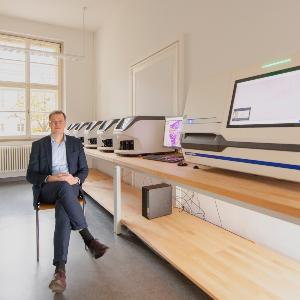 AI in medicine
AI in medicineNew approach for more efficient diagnostics
-
 Regarding the pro-Palestinian camp outside LMU Munich
Regarding the pro-Palestinian camp outside LMU MunichSince 13 May 2024, a pro-Palestinian camp has been located on publicly owned land on Professor-Huber-Platz in front of the university.
-
 LMU Munich continues to grow
LMU Munich continues to growOver 54,000 students have already enrolled at start of semester
-
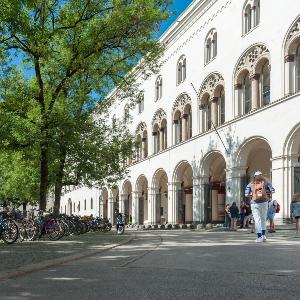 LMU Innovation Incubator start-up teams secure over 2.5 million euros
LMU Innovation Incubator start-up teams secure over 2.5 million eurosFrom physics to medicine and sport: experts developed a wide variety of ideas for new applications.
-
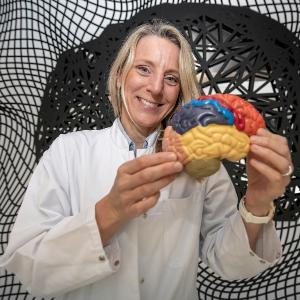 Multiple Sclerosis: Early Warnings in the Immune System
Multiple Sclerosis: Early Warnings in the Immune SystemLMU researchers demonstrate that certain immune cells already play an important role in the early stages of multiple sclerosis
-
 Groundbreaking for new Earth and Environmental Sciences building
Groundbreaking for new Earth and Environmental Sciences buildingWith floor space of approximately 17,000 square meters, the new building will have room for around 520 students and around 140 researchers.
-
 Excellent early-career research: Six new ERC Grants at LMU
Excellent early-career research: Six new ERC Grants at LMUGenerously funded, the starting grants are among the most prestigious research grants in Europe.
-
 Coastal cities must adapt faster to climate change
Coastal cities must adapt faster to climate changeAn international team of researchers led by LMU has analyzed the current state of climate change adaptation in coastal cities.
-
Shanghai Ranking: LMU is the best German university
LMU ranks 43rd in the latest Academic Ranking of World Universities, putting it among the top 50 universities in the world.
-
Artificial intelligence: Current research and future visions
Munich AI Day brings together leaders in the field
-
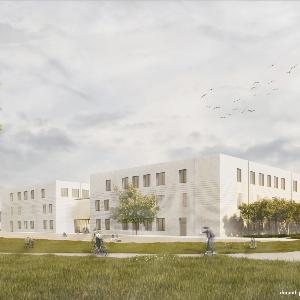 LMU campus in Oberschleissheim continues to grow
LMU campus in Oberschleissheim continues to growLMU campus in Oberschleissheim continues to grow with new building for Animal Anatomy and Animal Pathology
-
LMU founds research center on social inequality
The Munich International Stone Center for Inequality Research (ISI) is dedicated to the interdisciplinary study of social inequality.
-
 Diamond glitter: a play of colors with artificial DNA crystals
Diamond glitter: a play of colors with artificial DNA crystalsUsing DNA origami, researchers have built a diamond lattice with a periodicity of hundreds of nanometers.
-
 Color variants in cuckoos: the advantages of rareness
Color variants in cuckoos: the advantages of rarenessRufous or gray: LMU evolutionary biologists show that the color variants of female cuckoos are based on ancient mutations.
-
AI in medicine: the causality frontier
Using new methods, machines can learn not only to make predictions, but also to handle causal relationships.
-
 Concern for others emerges during second year of life
Concern for others emerges during second year of lifeDevelopmental psychology: the strength of children’s empathic response depends on the sensitivity of their caregivers.
-
 The aging brain: protein mapping furnishes new insights
The aging brain: protein mapping furnishes new insightsResearchers at LMU and the SyNergy Cluster of Excellence have analyzed how the protein composition of brain endothelial cells changes during aging.
-
 GLEN – a large scale panel study for the environmental social science research
GLEN – a large scale panel study for the environmental social science researchFunded by the German Research Foundation (DFG), the study aims to provide a unique data infrastructure as a basis for evidence-based policy advice.
-
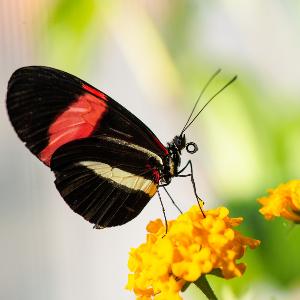 How butterflies choose mates: gene controls preferences
How butterflies choose mates: gene controls preferencesLMU evolutionary biologists have established a direct link between a gene and a visual preference behaviour in tropical Heliconius butterflies.
-
 Real-world laboratory in LMU forest: new collaboration for sustainability research
Real-world laboratory in LMU forest: new collaboration for sustainability researchThe project will come up with strategies for the sustainable management of south German forests and for dealing with extreme events in the future.
-
 New group to research family life in Bavaria
New group to research family life in BavariaAspects of family life being studied at different universities.
-
 Fossil CO2 emissions reach record high
Fossil CO2 emissions reach record highThe new Global Carbon Project report reveals that fossil carbon dioxide emissions will reach a record high in 2023.
-
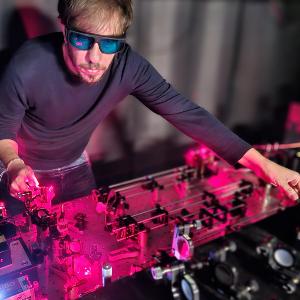 Harvesting more solar energy with supercrystals
Harvesting more solar energy with supercrystalsLMU researchers have developed new high-performance nanostructures to obtain Hydrogen (H2) with the help of solar energy.
-
 DFG funding for four LMU researchers
DFG funding for four LMU researchersThe funded projects deal with new biomarkers of ageing, quantum simulations, the journey of immune cells through the body and media usage strategies.
-
 Origins of life: new CRC at LMU
Origins of life: new CRC at LMUThe interdisciplinary project will investigate how the first evolution of molecules began.
-
 Nine researchers receive coveted ERC grants
Nine researchers receive coveted ERC grantsThe European Research Council supports innovative projects through Consolidator Grants.
-
 Paleogenomics: wildcats and domestic cats largely avoid each other
Paleogenomics: wildcats and domestic cats largely avoid each otherAn international team led by LMU paleontologist Laurent Frantz and Greger Larson (Oxford University) has investigated the history of cats in Europe using genetic analyses.
-
 New tool makes it easier to diagnose tuberculosis in children
New tool makes it easier to diagnose tuberculosis in childrenAn international research consortium led by LMU has tested a rapid new analytical tool which needs just a bloodsample from the fingertip.
-
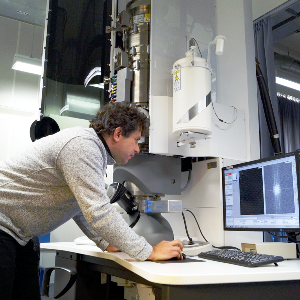 ERC Synergy Grant for LMU researcher Knut Müller-Caspary
ERC Synergy Grant for LMU researcher Knut Müller-CasparyThe funded project will develop approaches for the structural analysis of very small proteins.
-
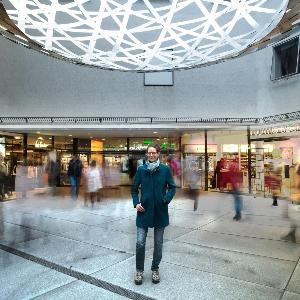 Life after coronavirus: International survey provides comprehensive data
Life after coronavirus: International survey provides comprehensive dataLMU researchers asked 621,000 people from 21 countries about their life circumstances after the coronavirus pandemic.
-
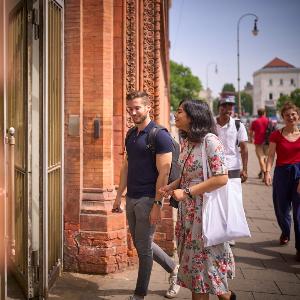 LMU continues to grow – almost 53,000 students registered by start of semester
LMU continues to grow – almost 53,000 students registered by start of semesterBucking the trend at many universities, LMU Munich has recorded an increase in student numbers at the beginning of the 2023/24 winter semester.
-
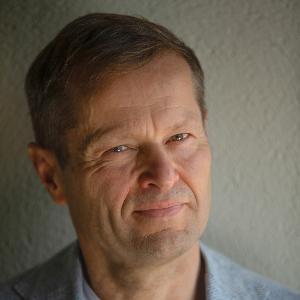 Nobel Prize for LMU physicist Ferenc Krausz
Nobel Prize for LMU physicist Ferenc KrauszThe LMU scientist is receiving the award for his pioneering work in attosecond physics.
-
 Origin of cultural learning: babies imitate because they are imitated
Origin of cultural learning: babies imitate because they are imitatedThe origin of social learning in humans comes from the interaction between infants and caregivers.
-
 Russia’s war against Ukraine: the bot offensive flanking the invasion
Russia’s war against Ukraine: the bot offensive flanking the invasionBots played a substantial role in the dissemination of pro-Russian propaganda after the Russian attack on Ukraine.
-
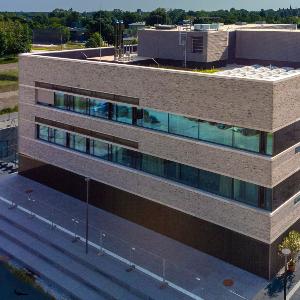 Preventing future pandemics: LMU’s new microbiology building
Preventing future pandemics: LMU’s new microbiology buildingLMU is today opening a state-of-the-art building for the Institute of Infection Medicine and Zoonoses of the Faculty of Veterinary Medicine on the Campus Oberschleissheim.
-
 Study shows: Covid-19 pandemic has had long-term impact on families
Study shows: Covid-19 pandemic has had long-term impact on familiesParental stress was major risk factor for psychosocial well-being of children.
-
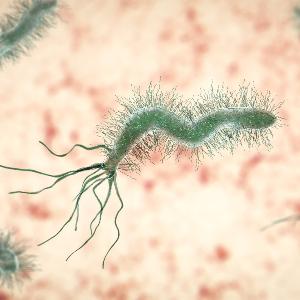 LMU researchers make progress in battle against Helicobacter and stomach cancer
LMU researchers make progress in battle against Helicobacter and stomach cancerNewly identified substances incapacitate the cellular respiration of H. pylori in a targeted manner.
-
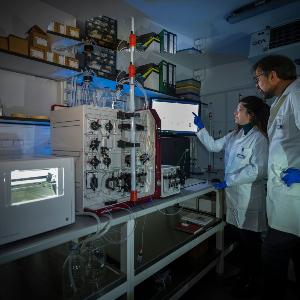 Molecular biology: DNA packaging supports cell division
Molecular biology: DNA packaging supports cell divisionTypical, highly regular structures of this packaging characterize the starting points for DNA replication.
-
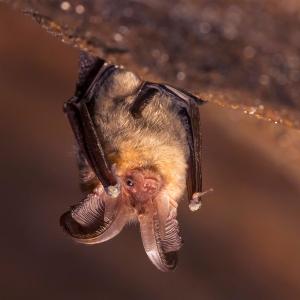 Bats in disrupted ecosystems are more infected with coronaviruses
Bats in disrupted ecosystems are more infected with coronavirusesLMU researchers show: The more an ecosystem is influenced by humans, the more bats in that system are infected with coronaviruses.
-
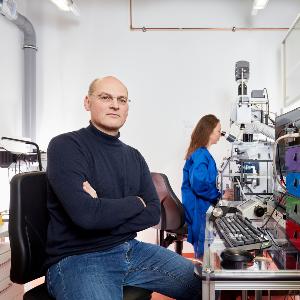 Premature Infant Medicine
Premature Infant MedicineWhat makes the immune systems of prematurely born babies susceptible to deadly infections.
-
-
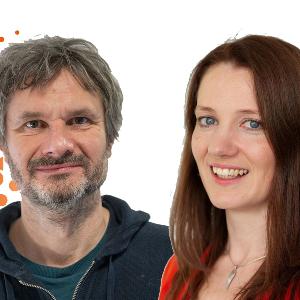
-
 CO2 data influence eating behavior
CO2 data influence eating behaviorA field trial has shown that labeling the carbon footprint of food prompts people to eat more sustainably.
-
LMU successful with Collaborative Research Centre funding applications
The German Research Foundation (DFG) is funding two new transregional CRC/TRR in the fields of mathematical physics and plant genetics.
-
Fifteen LMU scientists and academics make Highly Cited Researchers list
The latest analysis of publications places fifteen LMU scientists and academics among the most successful in their chosen field.
-
 No sign of decrease in global CO2 emissions
No sign of decrease in global CO2 emissionsNew report by Global Carbon Project predicts global fossil CO2 emissions of 36.6 billion tonnes by the end of 2022
-
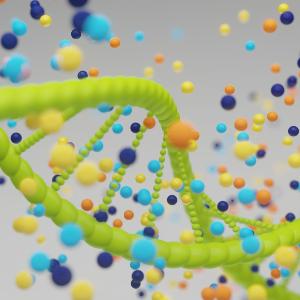 LMU coordinates first master’s degree program for precision oncology in Germany
LMU coordinates first master’s degree program for precision oncology in GermanyAimed at postgraduates, the interdisciplinary new master’s degree program “PRECISE” is due to begin in the 2023/2024 winter semester.
-
 Revolutionizing image generation by AI: Turning text into images
Revolutionizing image generation by AI: Turning text into imagesThe Machine Vision & Learning Group led by computer scientist Björn Ommer has developed one of the most powerful image synthesis algorithms in existence.
-
 Great success for AI research in Munich
Great success for AI research in MunichMunich Center for Machine Learning (MCML) receives permanent funding following positive evaluation.
-
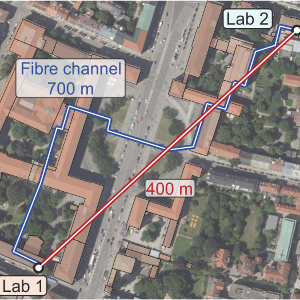 Quantum cryptography: Hacking futile
Quantum cryptography: Hacking futileResearchers at LMU and the University of Singapore have experimentally realized an expanded form of quantum cryptography for the first time.
-
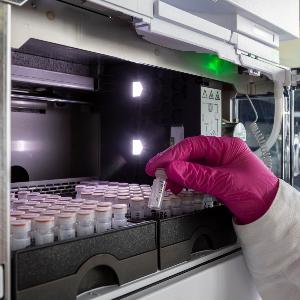 New research network for next-generation active ingredients
New research network for next-generation active ingredientsResearchers from LMU and TUM to establish future cluster for research and development into RNA-based therapeutics.
-
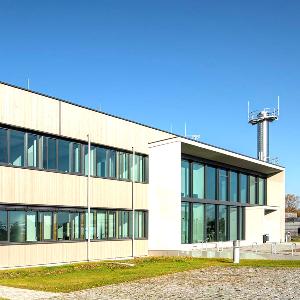 LMU opens the most cutting-edge equine clinic in southern Germany
LMU opens the most cutting-edge equine clinic in southern GermanyThe new LMU building in Oberschleissheim near Munich was inaugurated today.
-
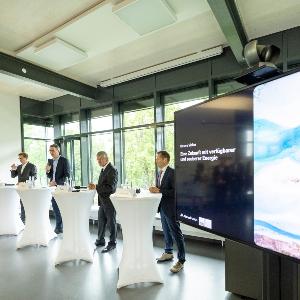 Cooperation to research laser-based nuclear fusion
Cooperation to research laser-based nuclear fusionLMU and the Munich start-up Marvel Fusion will be collaborating in the field of laser research.
-
 LMU receives funding for new Collaborative Research Centre
LMU receives funding for new Collaborative Research CentreThe German Research Foundation (DFG) is funding a new CRC/TRR to research the immune system.
-
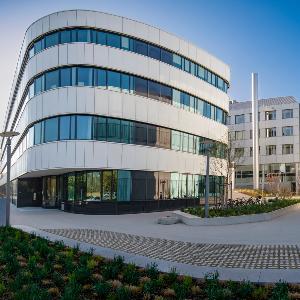 New cutting-edge LMU facility opens
New cutting-edge LMU facility opensThe Institute of Chemical Epigenetics (ICEM) offers ideal conditions for cutting-edge research at the interface between biology and chemistry
-
 Launch of nationwide CO2 removal research program CDRterra at LMU
Launch of nationwide CO2 removal research program CDRterra at LMUCoordinated by LMU as part of the nationwide CDRterra research program, researchers are investigating how CO2 can be removed from the atmosphere. The kick-off is planned from 18-20 May.
-
-
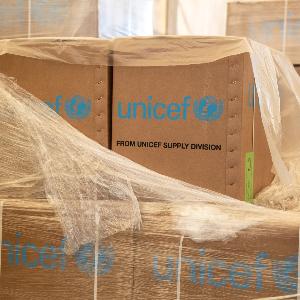 AI facilitates better control of global development aid
AI facilitates better control of global development aidResearchers at LMU Munich and ETH Zurich are using AI to improve and highlight gaps in the global monitoring of development aid projects.
-
 Land use important for climate goals
Land use important for climate goalsLand use is a decisive factor for getting a handle on climate change.
-
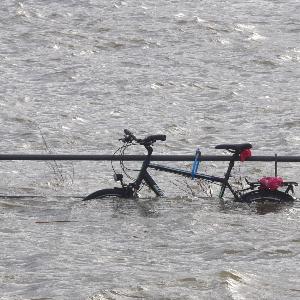 IPCC report: Adaptability has limits
IPCC report: Adaptability has limitsThe Assessment Report of the IIPCC published today shows: The consequences of climate change will be felt earlier and more strongly than assumed.
-
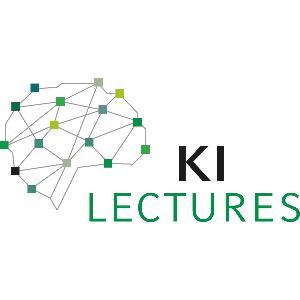 Artificial intelligence can play an important role in the political context
Artificial intelligence can play an important role in the political contextData-driven methods are very valuable when facing challenges to society, such as climate change.
-
 Groundbreaking network to build Bavaria’s first quantum computer
Groundbreaking network to build Bavaria’s first quantum computerMunich Quantum Valley successfully established
-
 LMU astrophysicist sees AI as essential to exploring the universe
LMU astrophysicist sees AI as essential to exploring the universeIn cosmological research, advances in telescopes and cameras are generating enormous amounts of data.
-
 Statistics: Novel approach at LMU allows to transfer survey results across contexts
Statistics: Novel approach at LMU allows to transfer survey results across contextsLMU statistician, working with colleagues from the US, has developed a method for reliably adapting data from a given sample to a different context
-
 Four new ERC grants at LMU
Four new ERC grants at LMUFour talented early-career researchers have each obtained a starting grant together with LMU from the European Research Council (ERC).
-
 “KI-Lectures”: The question of responsibility
“KI-Lectures”: The question of responsibilityLMU researchers discuss the ethical challenges of artificial intelligence as part of the “KI-Lectures” series.
-
 Climate change: LMU to coordinate national research program on CO2 removal
Climate change: LMU to coordinate national research program on CO2 removalRemoval and storage of atmospheric carbon dioxide is regarded as a vital element of efforts to limit global warming
-
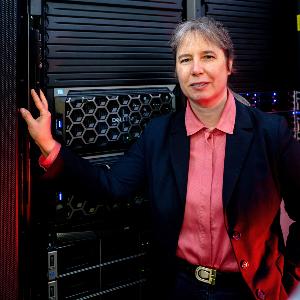 AI Lectures: LMU mathematician expects further breakthroughs in AI research in the medium term
AI Lectures: LMU mathematician expects further breakthroughs in AI research in the medium termIn the first of LMU’s new AI Lectures, Prof. Gitta Kutyniok reported on spectacular successes but also elementary problems around artificial intelligence
-
 AI Lectures: Insights into artificial intelligence - Understanding and explaining decisions
AI Lectures: Insights into artificial intelligence - Understanding and explaining decisionsLMU mathematician Gitta Kutyniok explains how AI works, how it arrives at its decisions, and what makes it so successful.
-
Deleting hate speech: AI models need to be people-centric
Sahana Udupa, Professor of Media Anthropology, and her project team have developed recommendations for AI systems and content moderation in online media, especially in social media.
-
 Current message from the LMU President
Current message from the LMU PresidentLMU President Prof. Bernd Huber thanked all members of LMU and announced vaccination events for LMU students.
-
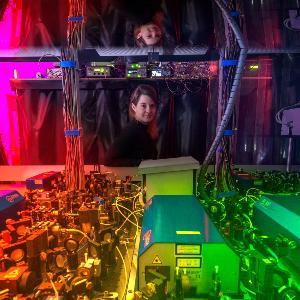 LMU physicist Professor Monika Aidelsburger wins Alfried Krupp Prize
LMU physicist Professor Monika Aidelsburger wins Alfried Krupp PrizeThe young experimental physicist receives the honor for her research in the field of quantum optics.
-
 In the new NATURE Index LMU is highest placed German university
In the new NATURE Index LMU is highest placed German universityLMU is ranked 65th among the universities listed.
-
ONE MUNICH Strategy Forum: TUM and LMU to jointly explore new research fields
As global competition among metropolitan regions intensifies, the two Universities of Excellence LMU and the Technical University of Munich (TUM) are consolidating their scientific strengths in future-oriented and high-potential research fields.
-
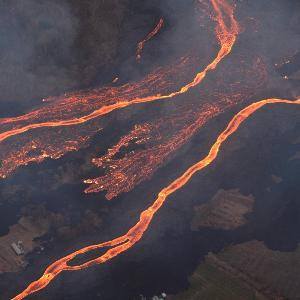 Seismic signals may predict volcanic eruption styles
Seismic signals may predict volcanic eruption stylesA specific seismic signal enables the viscosity of ascending magmas to be deduced hours or even days prior to a pending eruption
-

-
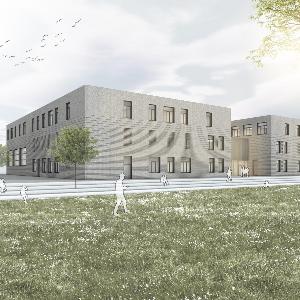 New building in Oberschleissheim approved
New building in Oberschleissheim approvedLMU gets green light for construction of animal anatomy and pathology building
-
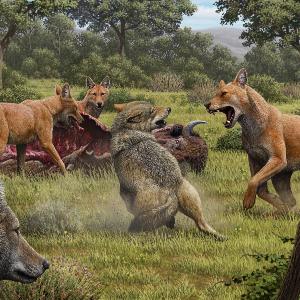 Ancient DNA reveals secrets of Game of Thrones wolves
Ancient DNA reveals secrets of Game of Thrones wolvesExtinct dire wolves split off from other wolves nearly six million years ago and were only a distant relative of today’s wolves, according to new research published in Nature



